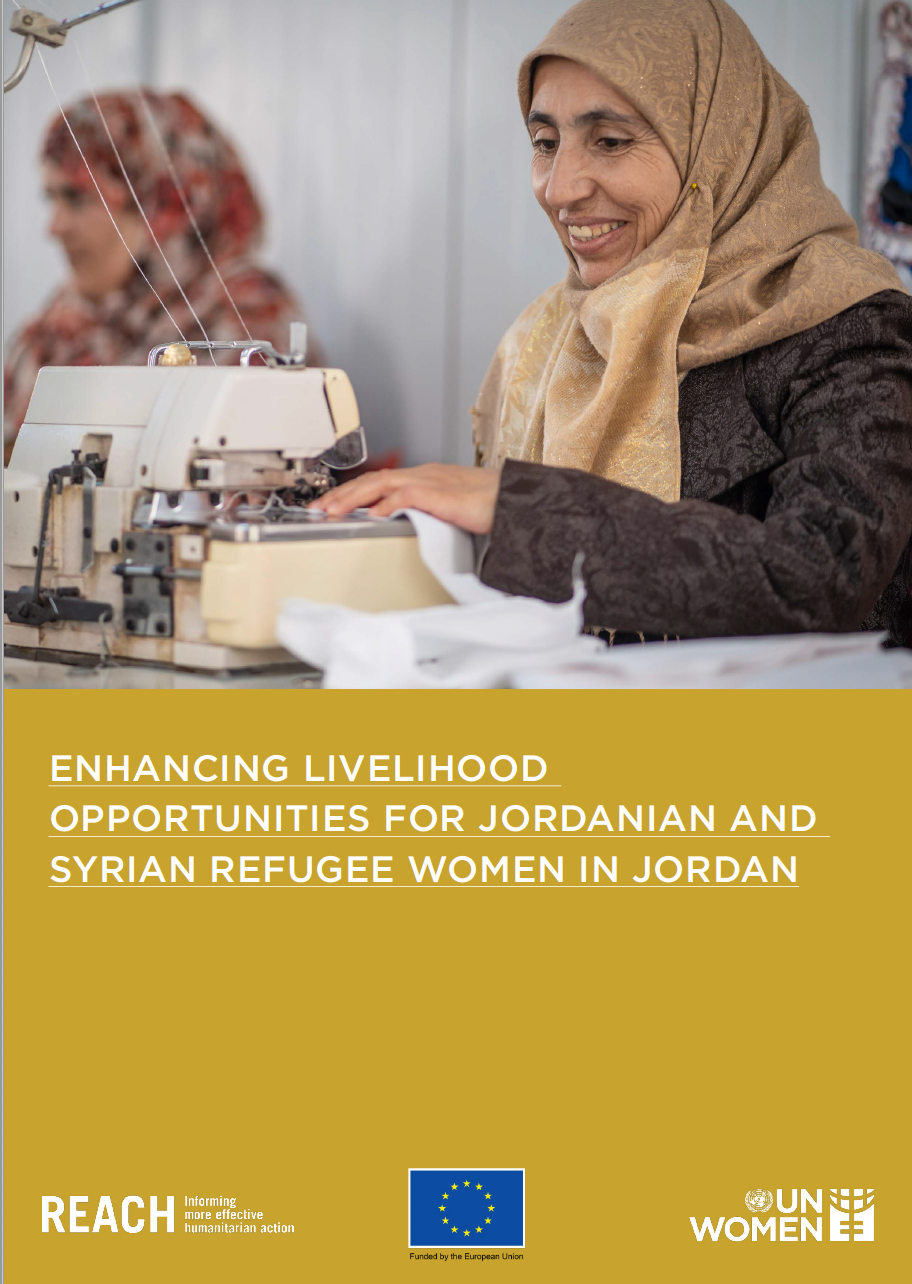
Enhancing livelihood opportunities for Jordanian and Syrian refugee women

The positive impacts of increased female labour force participation are far reaching and benefit not only women, but entire economies. However, reasons for low female labour force participation are complex and interrelated. Structural barriers such as poor transportation and childcare options, combined with patriarchal norms which dictate the acceptance of female participation, work to severely limit women’s formal labour force participation. While barriers to women’s participation in the labour market in Jordan have already been studied, and include both structural and social aspects, the characteristics and strategies of women engaged in the formal labour force have been largely unknown. To address this knowledge gap, this assessment sought to understand the enabling factors and continued challenges faced by working Jordanian and Syrian refugee women.
This report was prepared by REACH in partnership with UN Women and generously supported by the European Union, through the EU Regional Trust Fund in response to the Syria Crisis, the EU MADAD Fund, as well as the Governments of France and Japan as part of the UN Women’s regional programme ‘Strengthening resilience of Syrian women and girls and host communities in Iraq, Jordan and Turkey’.